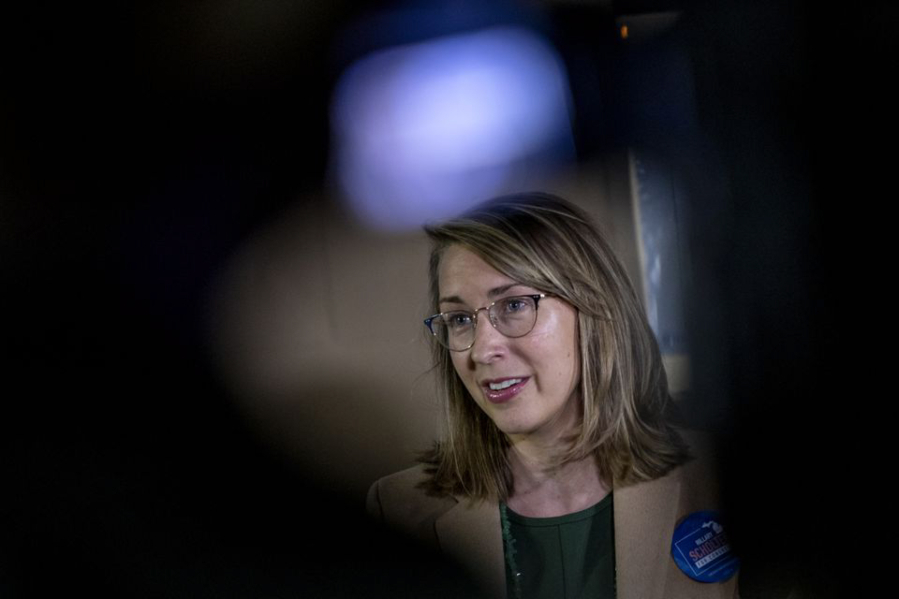When Democrat Hillary Scholten first ran for Congress in 2020, her campaign, like much of the rest of the world, went almost totally virtual.
Scholten, an immigration lawyer who lost to now-Rep. Peter Meijer in Michigan’s 3rd District, pivoted to video conferences, text messages and phone calls, with occasional masked and distanced interactions with would-be voters. This year, she’s again running for the seat, but says she’s embracing big, in-person events, including campaign kickoffs over the weekend in Grand Rapids, Muskegon and Grand Haven.
Her campaign figured out ways to “effectively communicate” with voters last time around, she said. “But I know not in the same way that we could have if we were able to with masks off, and full eye contact, facial expressions, you know, hear what’s on people’s minds,” she said in a recent interview. “And we’re really looking forward to that opportunity this time around.”
The novel coronavirus had upended nearly every routine, including campaigning, by this time two years ago — before vaccines and as lockdowns, indoor capacity limits and mask mandates became commonplace. Now, with mask and other requirements lifting across the country and people reengaging more in social and civic life, candidates, political organizers and D.C. lobbyist donors say in-person events are coming back, making the 2022 midterm campaigns more of a return to normal.



